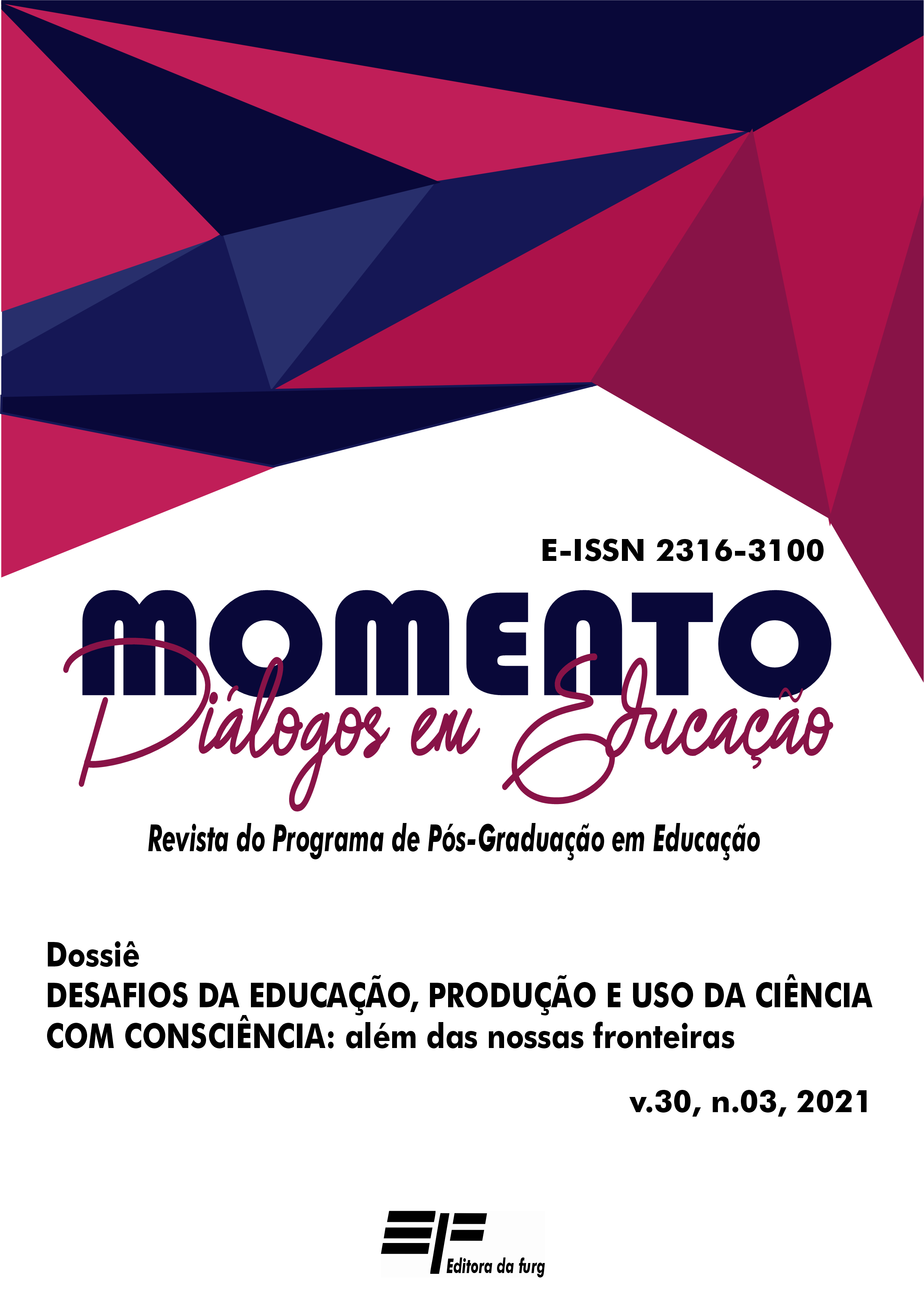THE CULTURE OF HUMANITIES AND THE SCIENTIFICITY IN SCIENTIFIC KNOWLEDGE CONSTRUCTION FROM THE PERSPECTIVE OF COMPLEXITY AND COMPLEX THINKING
DOI:
https://doi.org/10.14295/momento.v30i03.13570Keywords:
Science, Consciousness, Culture, ComplexityAbstract
Over the last two thousand years, Scientific Knowledge has been accumulated based on the ideas and conceptions of Aristotle, Ptolemy (90-168), Copernicus (1473-1543) Galileo (1564-1642), among others. From the 20th century on, four strands of thought predominate political ideology, biology and genetics; psychology; and post-Newtonian Physics. Nowadays, Science is done in a broad sociopolitical context, in which all political, economic, anthropological, ecological Knowledge is the world itself. However, in seeking Knowledge and excellence in Science, we have abandoned the context in which Science is performed - by people, in communities. Today, corporations control much of scientific discovery, as well as its future applications. Science has become, as never before, a political act, so we need to adopt multi-referential thinking, in which Knowledge progresses, mainly through the ability to contextualize and globalize. This capacity needs a general culture, diversified and stimulated. From this context, the work reflects scientific Knowledge in the face of the humanities culture and the culture of scientificity with a phenomenological approach from the perspective of epistemological pluralism.. This reflection contemplates the compartmentalization and the disjunction between humanistic culture and scientific culture, accompanied by the compartmentalization between different sciences and disciplines that leads to the specialization of sciences in such a way that only specialists can follow the rhythm and the details of the advance of an area of Knowledge, such as particle physics or astrophysics, for example. This intuitive process is based on complexity and complex thinking.
Downloads
References
BARRIOS, J. R. B.; SOSA, H. E. L.; LOPEZ, C. R. H.; MONTEZ, J. A. J.; TURATTI, A. M.; MAGALHÃES, J. C.; GUTIERREZ NIETO, G. M. Fórum Latino-Americano Ciência Com Consciência. Disponível em: https://cienciacomconsciencia.furg.br/ Acesso em: agosto de 2021.
CASTRO, I. E. de. Disponível em: https://www.amazon.com.br/Ci%C3%AAncia-com-consci%C3%AAncia-Edgar-Morin/dp/8528605795. Acesso em: agosto de 2021.
PROJETO RONDON
MARTINS, E. de C.; SANTOS, G. L. dos. Epistemologia qualitativa, fenomenologia e pesquisa-ação: diálogos possíveis. Filosofia e Educação [RFE], Campinas - SP, Vol. 9, n. 3, Out. 2017-Jan. 2018, p. 18-45.
MELO, K. A. Pensamento Complexo: uma nova e desafiadora forma de pensar a educação a partir das ideias de Edgar Morin. Anais ... IV Encontro Estadual de Didática e Prática de Ensino - EDIPE, Para uma realidade complexa, que escola, que ensino? GOIÂNIA, 21p., 2011.
MORIN, E. Introdução ao pensamento complexo. Lisboa, E. 4.ed. Porto Alegre: Sulina, 2011.
MORIN, E. Ciência com ConsCiência. 19ª Ed. Rio de Janeiro: Bertrand Brasil, 1994
PROJETO RONDON. Disponível em: https://www.gov.br/defesa/pt-br/assuntos/projeto-rondon/conheca. Acesso em: agosto de 2021.
PESCE, L.; ABREU, C. B. de M. Pesquisa qualitativa: considerações sobre as bases filosóficas e os princípios norteadores. Revista da FAEEBA - Educação e Contemporaneidade, v. 22, n. 40, Out. 2019, p. 19-29.
ROACH, E. F. F. Abordagem fenomenológico-hermenêutica e pesquisa em educação: um estudo de vigilância epistemológica. ETD – Educação Temática Digital, Campinas, v.10, n. 1, p.198-226, dez. 2008 – ISSN: 1676-2592.
ROJAS, J.; BARUKI, R.; SOUZA, R. S. E. de. Fenomenologia e rigor na pesquisa educacional: a experiência da UFMS. Anais... IV Seminário Internacional de Pesquisa e Estudos Qualitativos. Universidade Estadual Paulista Campus Rio Claro, 9 a11de outubro de 2010.
SERRES, M. Polegarzinha: uma nova forma de viver em harmonia, de pensar as instituições, de ser e de saber. RIO de Janeiro: Bertrand Brasil, 2013.
SILVA, S. L. R. da; ANDRADE, A. V. C. de; BRINATTI, A. M. O pensamento complexo e a formação docente: reflexões nas ações. Educação e complexidade = Educación y complejidad. BARRIOS, J. R. B.; SOSA, H. E. L.; FRANK MÉNDEZ, F.S.D. (Orgs.) São Paulo: Pimenta Cultural, 2021, p. 118-148.
Downloads
Published
How to Cite
Issue
Section
License
Copyright (c) 2021 Momento - Diálogos em Educação

This work is licensed under a Creative Commons Attribution 4.0 International License.
À Revista Momento − Diálogos em Educação, ficam reservados os direitos autorais, de todos os artigos nela publicados.


